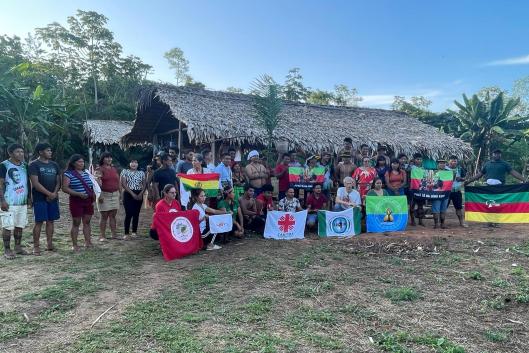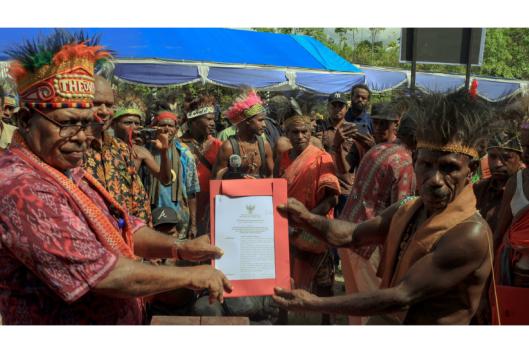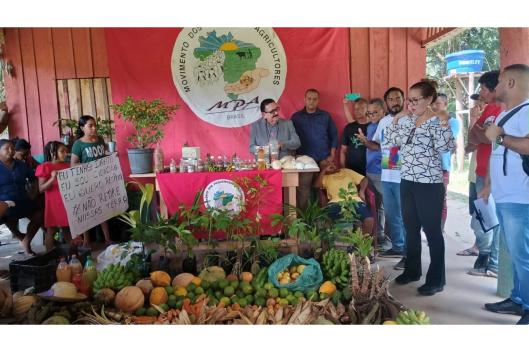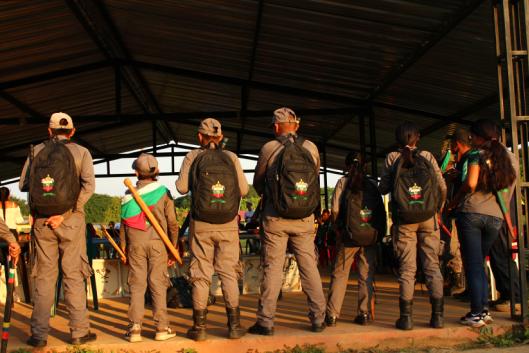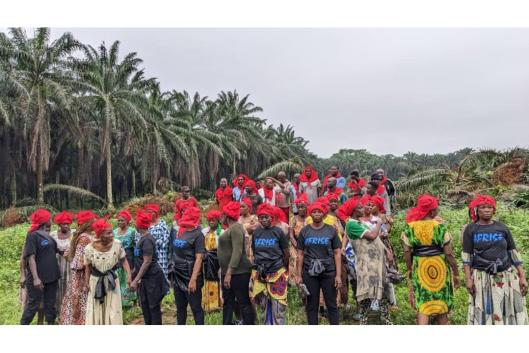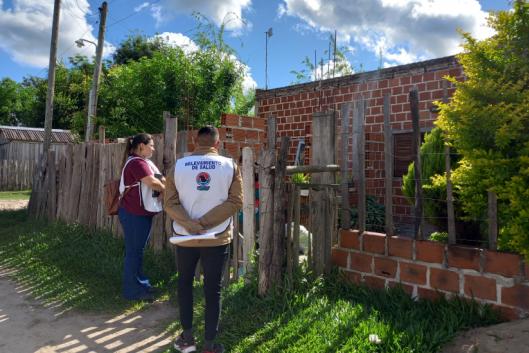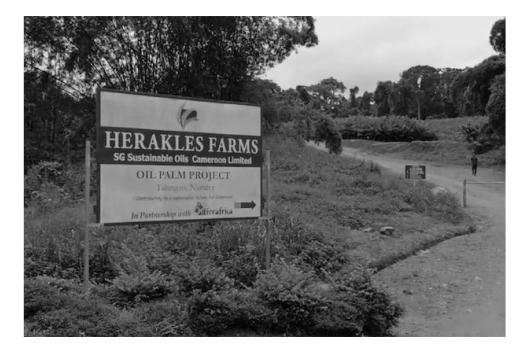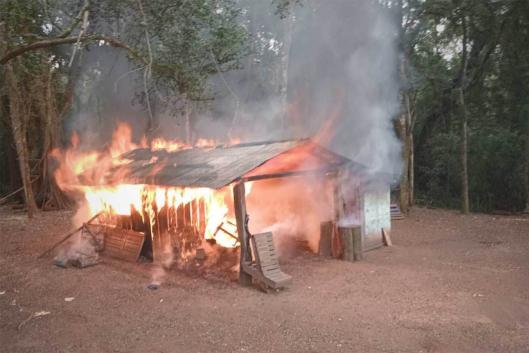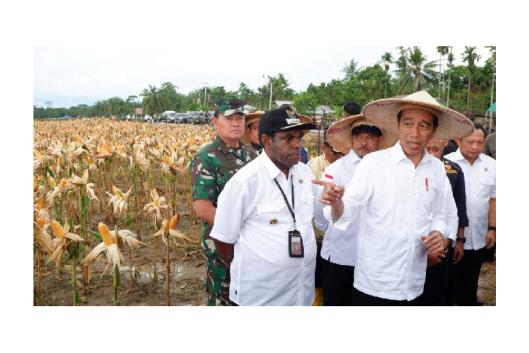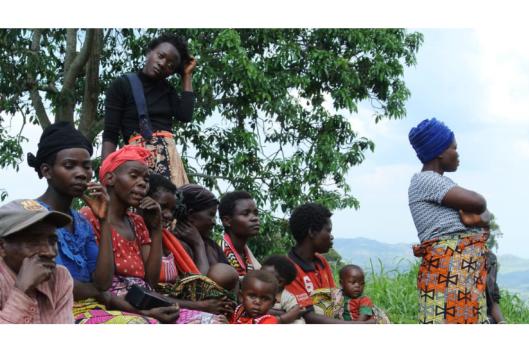This bulletin highlight several cases where the expansion of carbon projects has become an integral part of the extractivist model. Since this model has been destroying territories and people’s livelihoods for a long time, we share articles on both old and new forms of extractivism, and how communities continue to carry on struggles to resist them.
Bulletin 271 - August 2024
Communities resisting extractivism: from bioeconomy to monocultures and mining
WRM Bulletin
271
August 2024
OUR VIEWPOINT
COMMUNITIES RESISTING EXTRACTIVISM: FROM BIOECONOMY TO MONOCULTURES AND MINING
-
22 August 2024Just like the Dutch colonizers in the past did, the Indonesian government, companies and investors consider the land of Papua to be a vast empty territory, a new frontier for extraction and profiteering However, the land of Papua is not empty, but rather home to hundreds of Indigenous Peoples—including the women and men of Kampung Bariat village, who are struggling to ensure control over their ancestral territory and keep it free of oil palm plantations.
-
22 August 2024Peasant families are threatened with eviction by Brasil Bio Fuels (BBF) oil palm plantation company, with the complicity of the state government. This article shows that the much spoken of ‘bioeconomy’ is not ‘sustainable’ and even less ‘clean’. What it does is destroy communities’ territories, just like fossil fuel-based extractive industries have been doing for a long time.
-
22 August 2024Colombia's Orinoquía region stretches from the foothills of the country's eastern mountain range to the Venezuelan border. This region has historically been associated with the exploitation of rubber, timber, furs and other so-called “natural resources,” to the detriment of ancestral communities. Today, new threats are emerging under the paradigm of conservation, green energy and carbon projects.
-
22 August 2024The company is in the process of renewing part of its oil palm plantations in Edéa. At the end of last year, communities started to mobilize against this process. The community resistance has led the sub-prefect to request Socapalm to stop its activities. This is a first victory of the community but the struggle will continue until SOCAPALM returns the lands to the communities!
-
22 August 2024The Argentine province of Corrientes has the largest area of tree plantations in the country. 80% of the timber from these plantations goes to sawmills, where mountains of sawdust are regularly burned, causing serious health problems for neighboring communities. The local organization, Guardians of Y'vera, conducted a community health survey to highlight the problem, demand the relocation of these mills, and denounce the impacts of the forestry model.
FROM THE WRM BULLETIN ARCHIVES
-
22 August 2024Several articles in the current bulletin report about community struggles against old and new forms of extractivism that threaten the territories and livelihoods of communities in Latin America, Africa and Asia. For this reason, we recommend the rereading of an interview with the WRM Advisory Committee member Nasako Besingi, from Cameroon, about the challenges communities face.
RECOMMENDED
-
22 August 2024Recently, the Informal Alliance against industrial oil palm plantations in West and Central Africa has launched a new summary edition of the booklet “Promise, divide, intimidate, and coerce: Tactics palm oil companies use to grab community lands”.
-
22 August 2024On July 5, 2024, three peasant families were violently evicted in Paraje San Lorenzo 2, in the municipality of Wanda, in the Argentine province of Misiones. The provincial police carried out the eviction, in collaboration with the multinational company, Arauco. During the operation, the police destroyed the ten-hectare farm which had been the families' livelihood for a decade.
-
22 August 2024Indonesian President Jokowi planted the first sugar cane of one more mega-project in Merauke Regency in the South Papua Province on 23 July 2024. He claims the project will help to address the global food and climate crises. But it seems just one more disastrous large-scale project set up in Indonesia and Papua - such as the failed MIFEE project – that put the livelihoods of forest-dependent peoples at risk.
-
22 August 2024The African Commission of Human and Peoples Rights recently made public its historic ruling on the Indigenous Batwa Peoples’ right to return to their ancestral home from which they were violently evicted, when the Kahuzi-Biega National Park was created in Eastern DR Congo.
